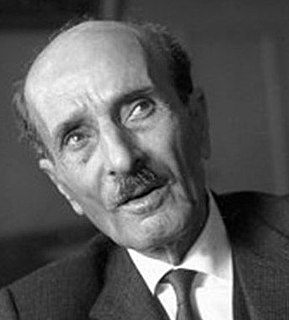A Quote by Pope John Paul II
The lust of the flesh directs these desires [of personal union], however, to satisfaction of the body, often at the cost of a real and full communion of persons.
Related Quotes
Nothing disciplines the inordinate desires of the flesh like service, and nothing transforms the desires of the flesh like serving in hiddenness. The flesh whines against service but screams against hidden service. It strains and pulls for honour and recognition. It will devise subtle, religiously acceptable means to call attention to the service rendered. If we stoutly refuse to give in to this lust of the flesh, we crucify it. Every time we crucify the flesh, we crucify our pride and arrogance.
Because the Christian God is not a lonely God, but rather a communion of three persons, faith leads human beings into the divine communion. One cannot, however, have a self-enclosed communion with the Triune God- a "foursome," as it were-- for the Christian God is not a private deity. Communion with this God is at once also communion with those others who have entrusted themselves in faith to the same God. Hence one and the same act of faith places a person into a new relationship both with God and with all others who stand in communion with God.
The struggle between God and man breaks out in everyone, together with the longing for reconciliation... God does not love weak souls and flabby flesh. The spirit desires to wrestle with flesh which is strong and full of resistance. It is a carnivorous bird which is incessantly hungry; it eats flesh and, by assimilating it, makes it disappear.
He who receives Communion is made holy and Divinized in soul and body in the same way that water, set over a fire, becomes boiling... Communion works like yeast that has been mixed into dough so that it leavens the whole mass; ...Just as by melting two candles together you get one piece of wax, so, I think, one who receives the Flesh and Blood of Jesus is fused together with Him by this Communion, and the soul finds that he is in Christ and Christ is in him
True love is delicate and kind, full of gentle perception and understanding, full of beauty and grace, full of joy unutterable. There should be some flavor of this in all our love for others. We are all one. We are one flesh in the Mystical Body as man and woman are said to be one flesh in marriage. With such a love one would see all things new; we would begin to see people as they really are, as God sees them.
The body is there because the mind seeks desires through the body; desires cannot be fulfilled without the body. You can be completely fulfilled without the body, but desires cannot be fulfilled without the body. Desire needs the body; the body is the vehicle of desire. That's why possession happens. You have heard, you must have heard, many stories about a ghost possessing somebody else. Why is a ghost so interested in possessing somebody else? It is because of desires. Desires cannot be fulfilled without a body, so he enters somebody's body to fulfill his desires.
Nothing, not even the best and noblest, can go on as it now is. Nothing, not even what is lowest and most bestial, will not be raised again if it submits to death. It is sown a natural body, it is raised a spiritual body. Flesh and blood cannot come to the Mountains [heaven]. Not because they are too rank, but because they are too weak. What is a Lizard compared with a stallion? Lust is a poor, weak, whimpering whispering thing compared with that richness and energy of desire which will arise when lust has been killed.










































